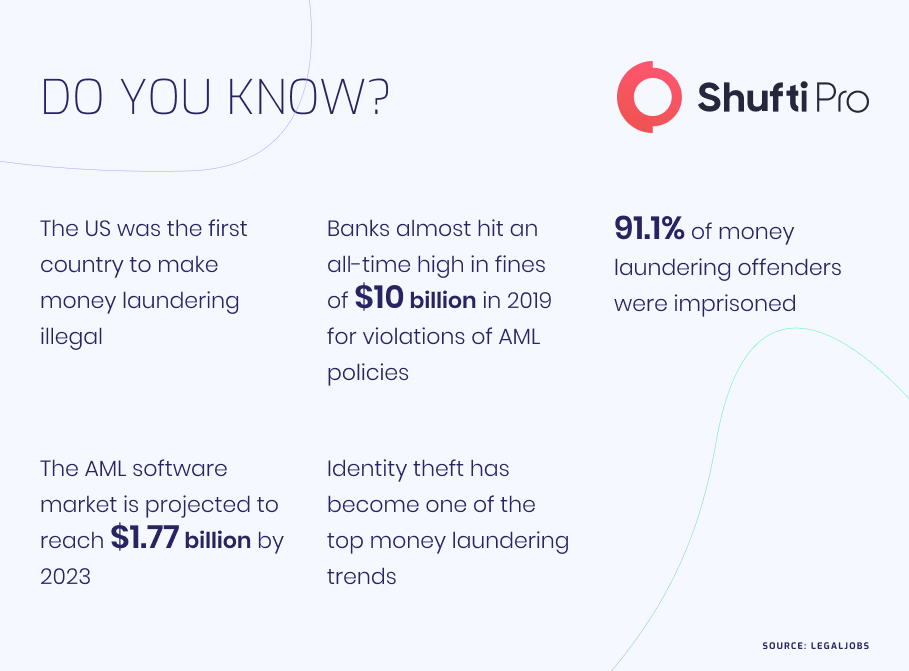Safeguarding Financial Operations with Transaction Monitoring and AML Screening

To enhance the power of anti-money laundering regulation, transaction monitoring systems have evolved to the extent where the focus is now on the requirement that companies carry out ongoing monitoring of customers. Financial firms, particularly banks have invested a significant amount in making their systems secure, but regulatory authorities across the world continue to impose hefty fines against non-compliant companies that failed to monitor customer transactions effectively. However, millions of transactions are monitored every day. AML transaction monitoring permits banks and other financial service providers to assess their customers spending and moving money in real-time.
Additionally, how banks can be sure that their services are not manipulated by money launderers. For instance, if a customer finds a way to exploit the system, both the client as well as the firm will be held accountable. Therefore, to curb the risk of financial crimes, financial service providers need to integrate transaction solutions to identify the nature and source of transactions.
Financial Industry Outlook 2022
The financial industry is considered one of the most vulnerable sectors to criminal activities particularly money laundering, terrorist financing and many more. Thus, financial crimes have become a critical issue for the banks and other firms that are providing financial services. However, it’s quite hard for businesses to identify the actual cost of proceeds of crimes as it includes regulatory sanctions, hefty fines, and reputational damage. Undoubtedly, fighting crimes is becoming quite hard for financial firms.
As global digitization is transforming the financial industry, the risk of cybercriminal activities is also growing immensely. Therefore anti-money laundering solutions, as well as laws, remain a major concern, as they hold the power to put stop to fraudulent activities. Its crystal clear that the old-school ways and methodologies to determine the procedure of money laundering and illicit transactions alone are not sufficient to reduce the risk level associated with financial firms. In addition to this, crimes are becoming more sophisticated and are evolving from being vertically integrated to individualistic to well-organised distributed operations, where the sensitive information is illicitly sold to criminals by the financial professionals.
Money laundering activities are also getting more advanced in terms of both technological evolvement and complexity, to an extent where the banks are being challenged to identify and reduce the risk of financial crimes. For this reason, the financial regulatory authorities across the jurisdictions are paying more attention to secure operations as well as increasing pressure on the financial firms to stay compliant and enhance AML control systems.

N1m Fine Imposed on Financial Institutions for Suspicious Transactions Reporting Failing
In accordance with the Money Laundering Bill 2022, recently legislated under the supervision of Nigerian President Muhammad Buhari, the Federal Government has imposed an N1m fine on the financial as well as non-financial businesses failing to comply with the country’s suspicious transaction and money laundering laws. In section 7 of this bill, titled “Suspicious transaction reporting”, suspicious activity can consist of any dealing involving a transaction amount exceeding the threshold amount or the presence of illicit earnings. Additionally, any inconsistent transaction with the known business patterns or which involves the proceeds of crimes including money laundering, terrorist financing and other financial crimes can be termed as a dubious transaction.
As mentioned in Section 7(10) of the Act “A financial institution or designated non-financial business and profession which fails to comply with the provisions of subsections (1) and (2) of this section commits an offence and is liable on conviction to a fine of N1m for each day during which the offence continues.” in addition to this, in the light of The Money Laundering Act 2022, the financial firms and designated non-financial businesses are required to report to the Special Control Unit, established to monitor transaction within and outside the country, about any suspicious activities within 24 hours submitted via a written report.
Philippines: Banks Reminded to Closely Monitor and Report Suspicious Transactions
The Philippines are making efforts to step out of the FATF’s grey list and the Bangko Sentral ng Pilipinas (BSP) reminds financial firms to monitor and report suspicious activities related to money laundering, terrorist financing and other financial crimes. In addition to this, the Deputy Governor of BSP, Chuchi Fonacier, said that financial firms operating in-country must submit proper suspicious transaction reports with links to tax crimes, particularly the ones with a tax deficit exceeding P25 million and not complying with the National Internal Revenue Code of 1997.
In addition to this, Fonacier said that BSP-supervised financial institutions (BSFIs) must include the suggested tax-related phrases in the narrative STRs with links to financial crimes or predicate offences like fraud, violation, corruption, and intellectual property.
Chuchi said, “BSFIs are reminded to conduct commensurate measures and consider the results of the above reports in their institutional risk assessment as well as risk profiling of the real estate sector, to improve their overall anti-money laundering/counter-terrorism and proliferation financing framework.”
AML Transaction Monitoring Standards and Risk-based Approach
To secure the financial services and banking sector’s integrity, firms need to develop
the risk-based approach includes a rigid set of identity verification checks including due diligence, enhance due diligence and aml screening to manage as well as assess the risk associated with the clients or scenarios that require high monitoring parameters, while for lower-risk entities, and where there is no chance of suspicious transaction or money laundering, simplified due diligence may be permitted.
However, to practice a risk-based approach to AML screening and transaction monitoring, jurisdictions, as well as financial firms, need to take effective steps to determine the source of transactions and assess the risk of money laundering, and terrorist financing on an ongoing basis. Additionally, the financial action task force, a global regulatory body making efforts to make financial services secure and reduce the risk of money laundering has also set various standards related to anti-money laundering and counter-terrorism financing procedures.
FATF’s AML/CFT Standards
- Assessing the nature, complexity and scale of financial service providers.
- Information regarding financial firm’s operation along with the jurisdiction in which they are operating.
- Making customer risk profiles and ongoing monitoring to assess future risk.
- The volume and size of transactions along with the distribution channel used.
How Shufti Can Help
Shufti’s state-of-the-art AML services are an optimum solution for financial institutions, as it allows them to carry out enhanced due diligence procedures along with ongoing customer monitoring. Powered with thousands of AI algorithms, Shufti’s background screening services authenticate customers against 1700+ global watchlists in less than a second with 98.67% accuracy to create client risk profiles. In addition to this, it also enables banks to stay put with the ever-evolving regulatory regime. Hence, making financial operations secure and risk-free.
Get in touch with the experts to know more about AML for financial institutions.

 Explore Now
Explore Now













